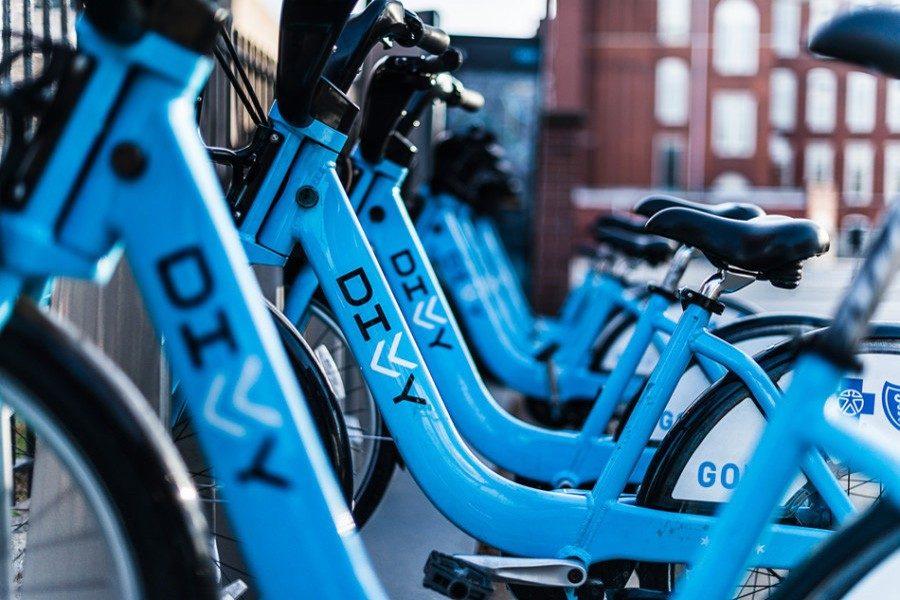Divvy bikes debut in Evanston
Divvy brings 100 bikes to 10 locations throughout Evanston this week. The program, funded in part by Northwestern and a $3 million grant from the Illinois Department of Transportation, comes to the city nearly three years after officials first expressed interest.
June 29, 2016
Evanston residents will have another means of transportation when Divvy bikes roll into town this week.
After nearly three years of planning, the program will bring 100 bikes to 10 locations throughout the city. Evanston joins Chicago and Oak Park in adopting the program, which allows riders to bike between more than 580 existing stations.
“The Divvy program really reduces a lot of the initial hurdles that individuals face when they’re thinking about riding a bike,” said Katherine Knapp, the city’s transportation and mobility coordinator. “The style of the bike promotes easy, cruising cycling. We’re creating a transportation system geared at the everyday cyclist.”
Evanston officials first expressed formal interest in the bike-sharing system in August 2013, when the Chicago Department of Transportation applied for a $3 million grant to expand Divvy to the local area. The application was initially denied, but later revisited and approved by former Gov. Pat Quinn.
Officials spent the next five months searching for locations to place the bikes in Evanston and finding sponsors to help fund the project.
In February, City Council narrowly approved the installation of the bikes. The program will launch with four initial sponsors — Northwestern, NorthShore University HealthSystem, Valli Produce and Presence Saint Francis Hospital — and Knapp said she hopes more local organizations will sign on in the future. Annual membership starts at $99 and allots users unlimited 30-minute rides throughout the system.
Still, some aldermen remain concerned about upkeep costs.
Ald. Donald Wilson (4th), who in February voted against the program, said the bikes were not worth their price tag. Though the city will pay no upfront costs, Knapp said Divvy’s contract stipulates that it must receive about $230,000 a year — money that may come from city funds if membership is not high enough.
“Going back in time when these were first taking off in Chicago, I was actually really excited about the concept,” Wilson said. “I did some outreach … and there was a significant amount of sticker shock when I realized what the actual cost was going to be.”
Nevertheless, Wilson said he had no qualms with the bike-sharing concept itself and encouraged residents to take advantage of the new program.
Ald. Eleanor Revelle (7th), former president of Citizens’ Greener Evanston, said Divvy will help lower greenhouse gases and address a growing demand for bikes. From 2000 to 2010, Evanston’s recorded number of bicycle commuters increased by nearly 50 percent, according to a news release from the city.
“It’s tricky because there are just so many demands on the city’s resources,” she said. “My hope is that … my council colleagues will see that there are enough additional benefits — healthier residents, fewer cars and less pollution — that they’ll think any additional city investment will be worthwhile.”
Knapp said NU covered the cost of two bike stations located at University Library and on the corner of Sheridan Road and Noyes Street. According to its website, Divvy also offers a discounted rate for students.
In 2014, an Associated Student Government survey of more than 1,600 students showed 31 percent would use a bike-sharing service like Divvy. Kevin Harris (Weinberg ’16), former ASG vice president for community relations who led the push for Divvy, said the program would remove maintenance costs associated with owning a bike and increase accessibility.
“(Divvy) is in line with the University’s priorities in terms of connecting students to different parts of Evanston that … they otherwise wouldn’t explore,” he said. “It has to do with making the local area more accessible.”
Email: [email protected].
Twitter: davidpkfishman


